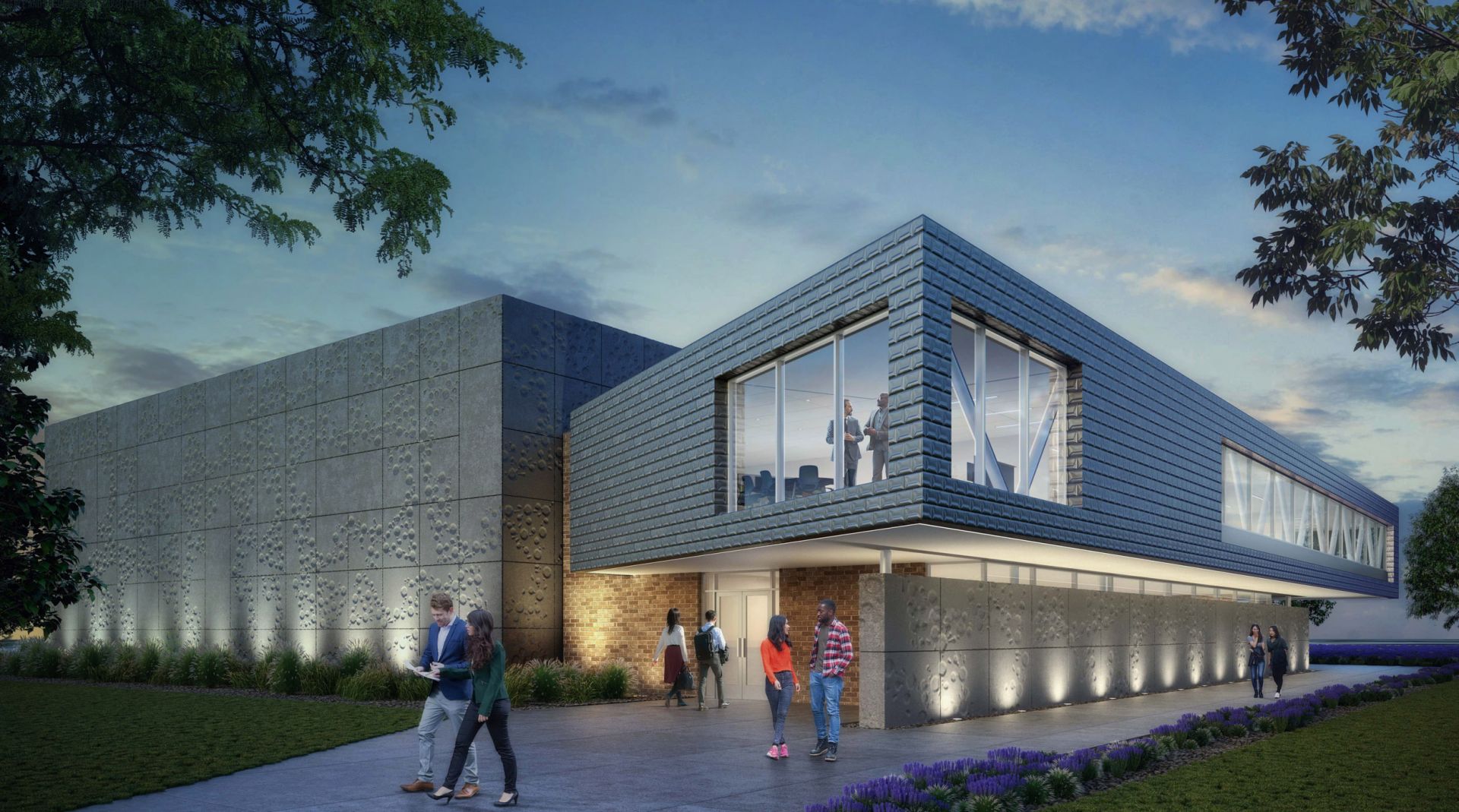A south-facing view of the Dillard Science and Engineering Research Center at Abilene Christian University, scheduled for completion in the summer of 2023. The new facility will provide space for ACU’s NEXT Lab, as well as for research in chemistry, physics, and engineering.
Abilene Christian University’s Nuclear Energy eXperimental Testing (NEXT) Lab continues to make progress toward building a molten salt research reactor (MSRR) on the university’s campus. NEXT Lab submitted an application for a construction permit to the Nuclear Regulatory Commission last August, and in November the agency announced it had docketed the application—the first for a new research reactor in more than 30 years.
The new Science and Engineering Research Center at Abilene Christian University (Photo: Abilene Christian University)
Nuclear News reached out to the Nuclear Engineering Department Heads Organization (NEDHO) to ask for assistance in connecting with nuclear engineering programs at U.S. universities. Our request to universities was to provide us with updates on their programs and to detail their areas of special interest.
NEDHO came through big time. As a result, 20 nuclear engineering programs answered the call. In this series of articles, we will take a close look at university programs around the United States. This time, the focus is on Abilene Christian University, in Abilene, Texas.
Left: The University of Texas at Austin SBD Challenge team: from left, Michael Butero, Matthew Frangos, Daniel Gutierrez, and John (Jack) Whelan. Right: The University of Rhode Island team: from left, Jay Macchia, Sean Babin, and Peter Tillinghast. (Photo: NNSA)
The National Nuclear Security Administration's Office of Nonproliferation and Arms Control has been partnering with national laboratories and universities to introduce engineering students to the field of international safeguards. Safeguards ensure that nuclear material and facilities are not used to illicitly manufacture nuclear weapons, the NNSA noted in a July 27 article.




